by Delbert Reed. (Originally published in The Northport Gazette, March 24, 2004).
I could tell the man was on a serious mission by the way he marched directly into my office and looked me in the eye.
“Are you Delbert Reed?” he asked in a tone that made me stammer a bit before confessing that I was. “I’ve been looking for you for over 35 years,” he said, finally offering a smile that told me that he probably wasn’t heavily armed.
He told me his name was J. T. Taylor and that he had been reading stories I’ve written since the sixties and wanted to meet me face to face. Then his story and our friendship began.
“I grew up at the foot of Reed Mountain and knew a lot of your family,” he said before quickly naming several of the 11 children of my great grandfather Wes and Leona Davis Reed who grew up on Reed Mountain just north of Haygood Methodist Church in northern Tuscaloosa County.
“I knew Etta, Elliott, Ed, Evaline, Ester and your grandfather Ellis,” Taylor continued. It would have been a real trick if he had been able to continue with the names of Ethel, Elbert, Elmer, Effie, Essie and Ella. “I knew Wes Reed, too; I knew all the Reeds,” he said.
I proudly told Taylor that I actually have Wes Reed’s dinner bell and that it was given to me by the late Carl Harris nearly 30 years ago. “I remember that bell,” Taylor said. “It was on a pole in their yard and I remember hearing it ring many times.”
Taylor quickly called off dozens of other names I’d heard all my life, and mentioned places I’d known about but had all but forgotten through the years. Before our first visit ended, Taylor promised to show me the site of the old Reed home place on Reed Mountain one day, and he did so last weekend as we talked about our roots and our lives.
The Taylor family grew up about a mile and a half down the “mountain” from the Reeds, and there were ten Taylor children who helped Jim and Stella Gilliam Taylor work their 120-acre farm. Six of the ten survive today, including Wiley, nearing 94; J. T., 79; Martha Donour; Brazzie Rogers; Maxie Bryant and Gladys Franks. Martha has even returned to the old Taylor farm where she lives today in the same house in which she was born and raised.
“I joined the Navy in 1943 and got out in 1946,” Taylor said, proudly noting that he even returned to Gorgas High School after his Navy tour and earned his diploma.
Taylor was in Japan from November 1945 until March 1946 and visited Hiroshima (the site of the world’s first wartime atomic bomb blast on August 6, 1945) “eight or ten times” and Nagasaki (the site of the second atomic bomb blast on August 9, 1945) once.
“I still think they (the military) used us as guinea pigs,” Taylor said of his visits to the cities devastated by the bombs. “My feet and hands broke out in blisters—bad blisters—for years afterward. It started in the spring of 1946 and finally cleared up in the mid-seventies. My feet were sore for 30 years and I had nightmares that my feet were rotting off.”
Taylor, though only a youngster at the time, recalled the difficult years of the Great Depression, especially 1930-31. “I guess we were well off,” he said. “We had plenty of peas, cornbread and sweet milk. And we played baseball in John Tierce‘s pasture down by the creek.”
Taylor spent several years working at Gulf States Paper Corporation in Tuscaloosa before landing a job with the Postal Service in 1955. He stuck with the job for more than 30 years before retiring in 1985.
“What have you been doing since then,” I asked. “Oh, I’ve been busy,” he laughed.
Taylor did admit to having run into a few bumps in the road of life, including having trouble with alcohol for many years and having his first wife leave him after more than 30 years of marriage.
“I used to drink regular,” he said with a serious look in his eye. “I drank every day; I was an alcoholic and I still am, but I’ve been sober 26 years. But for 20 or 25 years before that I drank every day. Alcohol was the best medicine I could find for my arthritis,” Taylor added. “It was hard, but I quit. It took me three or four years to get back to a normal life, but the last 16 years have been wonderful,” Taylor added.
(Originally published in The Northport Gazette, March 24, 2004)
James (JT) Taylor died March 4, 2015 at the age of 76, at home in Bonnie’s arms. Click here to read obituary.
Samantha Living would like to thank Delbert Reed for sharing this story. We appreciate his journalism and interest in the Samantha Community. We invite your comments below or send them and any photos you might have to editor@samanthaliving. Please comment below
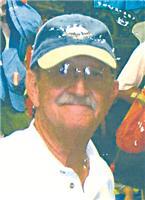
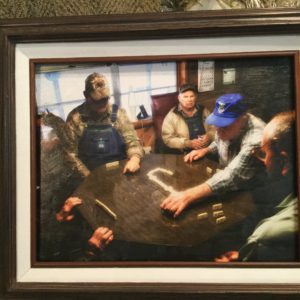
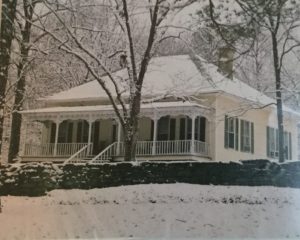
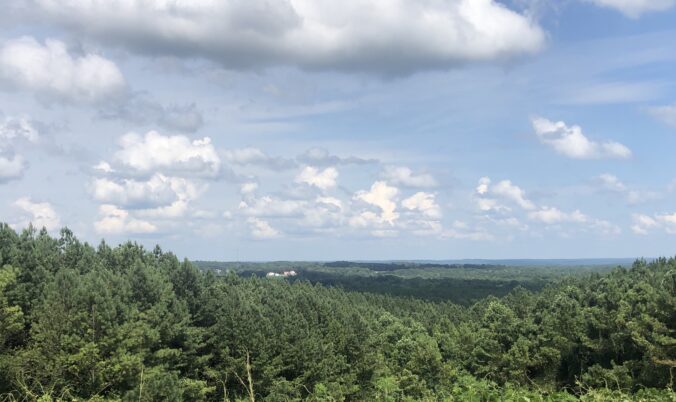
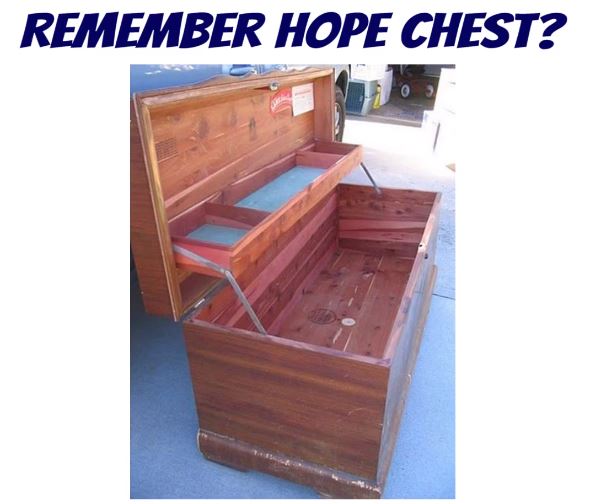
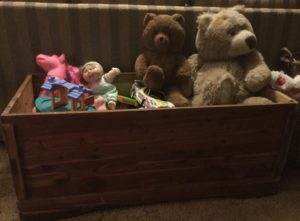
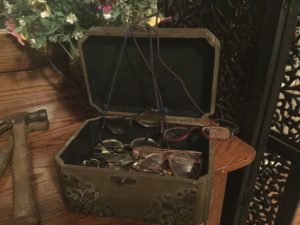
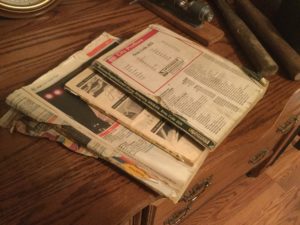

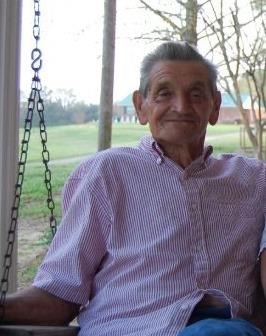
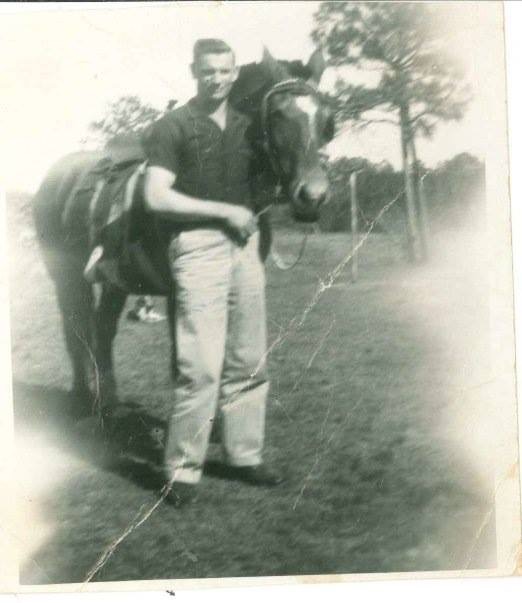
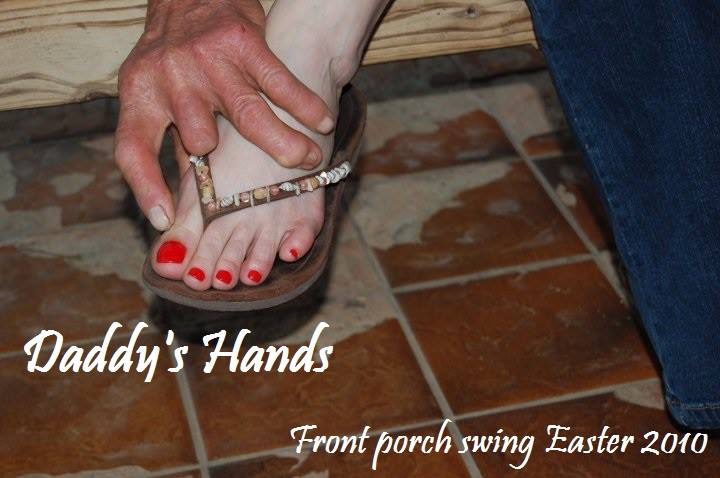
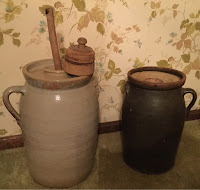

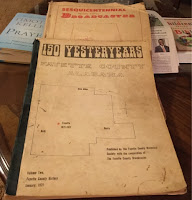
Most Recent Comments